Browsing Bishkek: Kyrgyzstan’s leafy capital
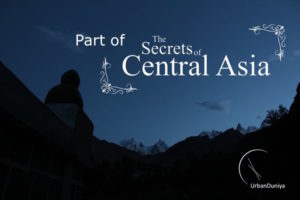 I spent a summer’s afternoon walking around the streets of Bishkek, Kyrgyzstan’s leafy capital city, to discover more of The Secrets of Central Asia, and to understand what makes this city tick.
I spent a summer’s afternoon walking around the streets of Bishkek, Kyrgyzstan’s leafy capital city, to discover more of The Secrets of Central Asia, and to understand what makes this city tick.
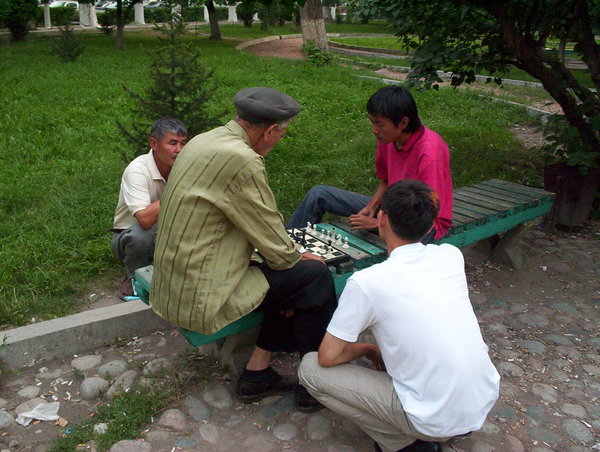
The orderly, tree-lined streets near the city centre seem to hum with activity; not buzz, but hum. The local populace are out and about on a shopping day at the end of a week. Underground pedestrian subways are lined with stalls, staffed by local trying to make ends meet. Above ground, department stores like the Tsum Centre stock the latest wares from London, Tokyo and Silicone Valley.
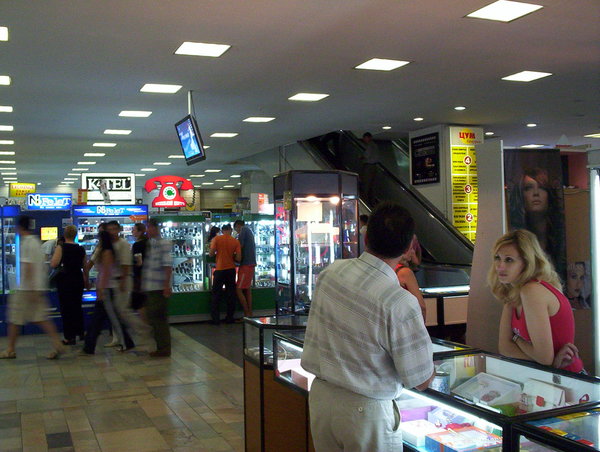
Tsum department store
Bishkekers seem to be a cosmopolitan lot, a mixed bag of tribal and urbane, blue and white collar, Russian and native Kyrgyz. What strikes me most is how peaceful the activity on the streets is. People aren’t rushing places, instead they’re strolling through parks, along tree-lined boulevards. They’re playing table tennis and chess in the pine-filled reserves, and they’re sitting in the outdoor cafes, calmly soaking up the rays of the sun.
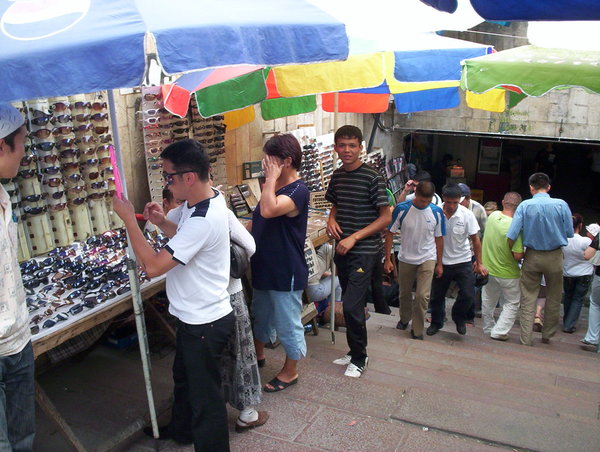
Bishkek can get seriously cold; some winter days struggle to reach a maximum of zero celsius. This is a fact I’m reminded of as I glance southward down any main street; the tail end of the Tian Shan Range can easily be spotted with its perpetually snow-capped peaks.
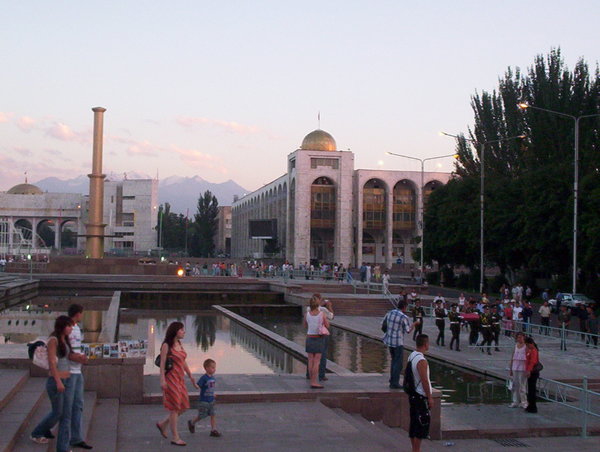
The Tian Shan Range behind Ala-Too Square
And then I diverge from the main road to enter an adjacent suburban block to find the Frunze Museum. The suburban streets are quiet, with the sun’s dappled rays filtering through the tall trees. The streets remind me of some of the suburbs on Sydney’s leafy North Shore, along with some equally grand houses. Evidently, this is the place where Bishkek’s well-to-do have settled down.
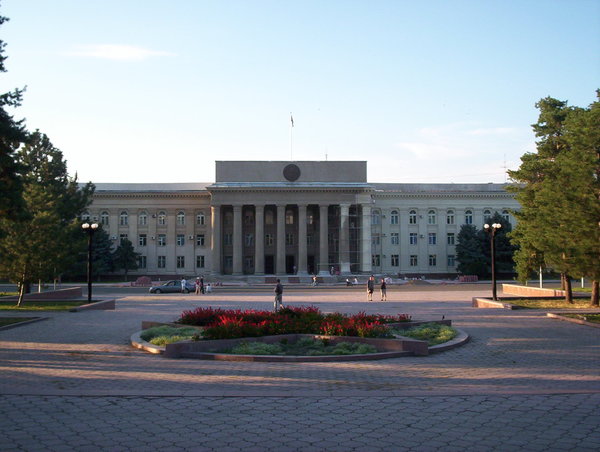
Kyrgyzstan’s Government House in Bishkek
The Frunze Museum is named after Mikhail Frunze, the the Russian Bolshevik leader who conquered the local resistance in 1918. Once part of the Soviet Union the city was renamed Frunze after him, a legacy that lives on in Bishkek’s airport code “FRU”.
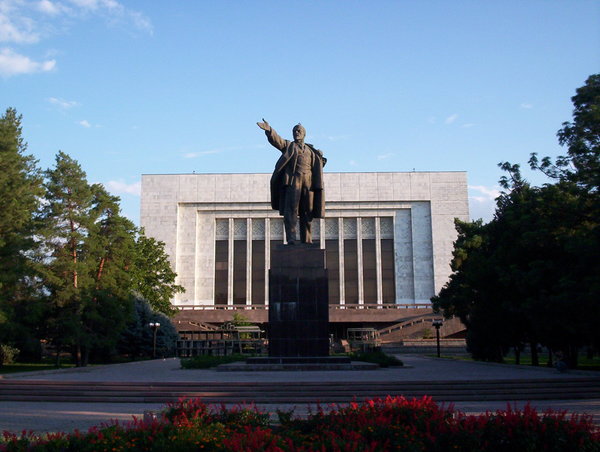
Lenin statue
The Frunze Museum is both a tribute and a memorial to the highs and the lows of Soviet rule. The Soviet Union turned Bishkek, then a backwater military post, into a planned regional city. It also came at a huge cost; political life was decimated (a puppet regional government was controlled by Moscow), religion was virtually outlawed (mosques were bulldozed) and the KGB were especially active here (numerous outspoken locals disappeared without a trace). In 1925 Mikhail Frunze himself became a victim of the Soviet Union’s sinister workings when he died during a surgical procedure, personally ordered by Joseph Stalin.
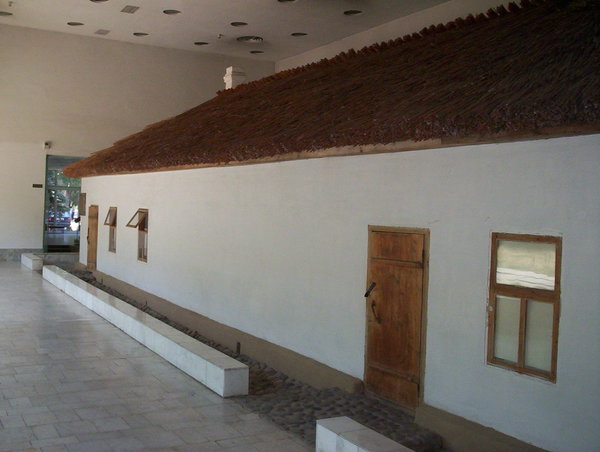
The house that Mikhail Frunze grew up in, now rebuilt inside the Frunze Museum, Bishkek
Independence in 1991 brought with it political, economic, social and religious freedom; “Frunze” became Bishkek, the capital of a new nation; but as in so many post-communist nations a certain sense of nostalgia for Soviet times prevails among the older generations.
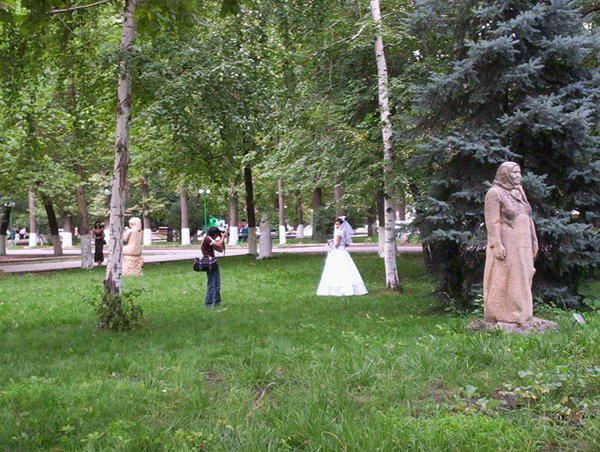
Back out on the street, it was time for lunch. I strolled past the overgrown but popular Panfilov Park. Children played on the Soviet-built playground, the few remaining flecks of paints peeling off the creaky steel see-saw; teenagers shrieked as they were tossed about on rickety rides at the sideshow alley; a couple were getting their wedding picture taken in a lush patch of garden; and over between the park and the rear of the Frunze Museum, the statue of Lenin continues to cast his triumphant gaze over the whole neighbourhood.
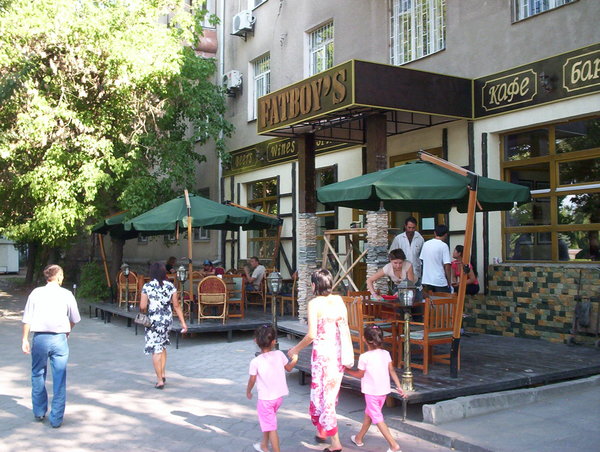
I sat in Fatboy’s, an ostensibly American-style pizza cafe that also turned out decent green tea and manti, a Kyrgyz-style dumpling. Although I had spent a while trying to get under the skin of Bishkek, I knew I had only scratched the surface… and I wondered what other secrets were waiting to be uncovered elsewhere in Kyrgyzstan.
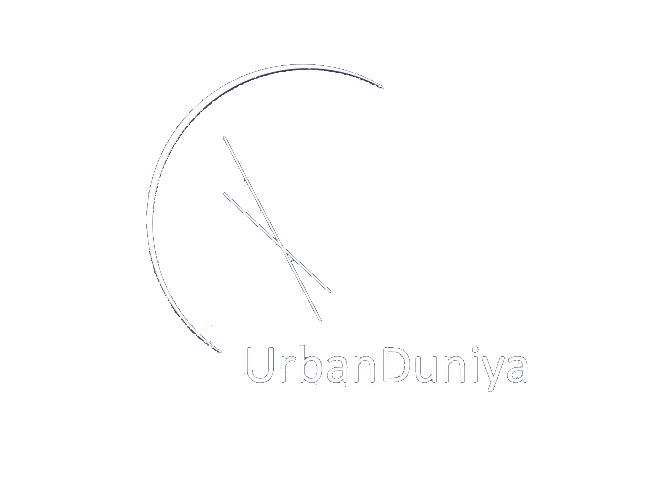
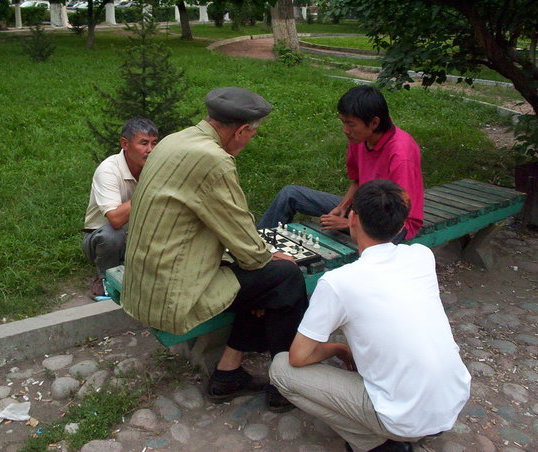
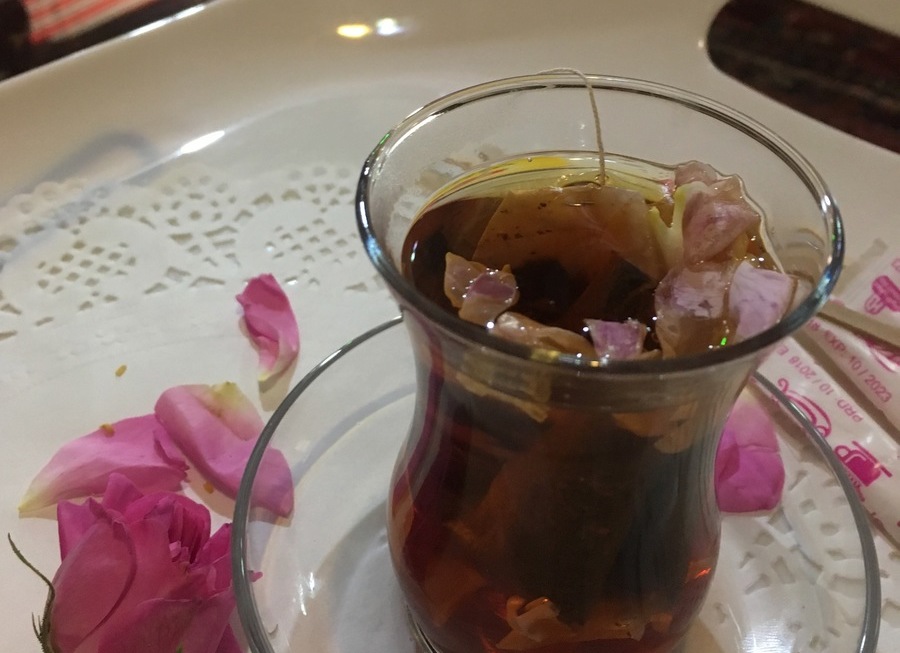


bishkek, without a doubt, is a very pleasant capital city. so much sso it doesnt feel like the capital of anywhere!
True! Bits of it almost felt like a rural Australian town to me!